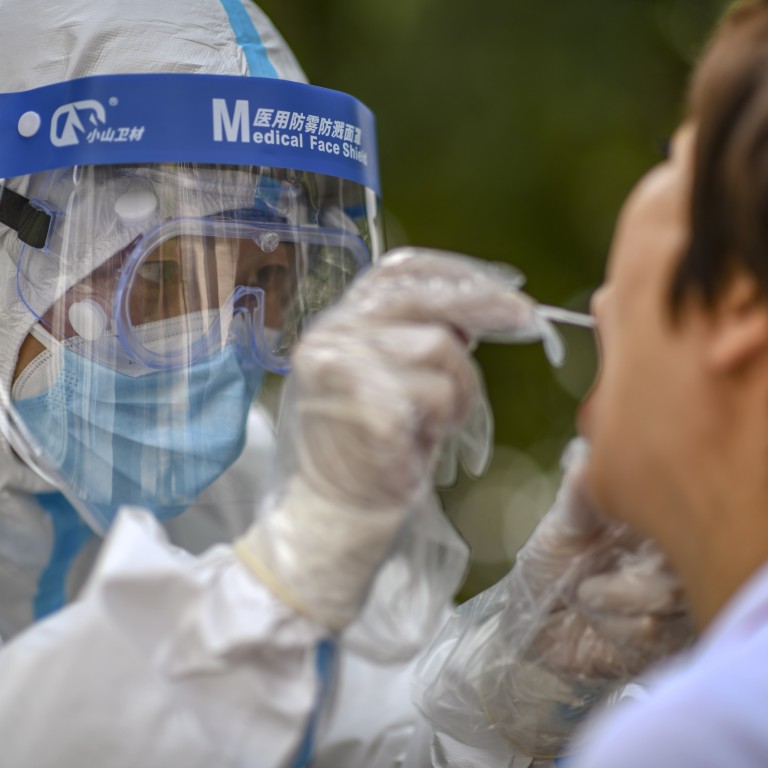
Coronavirus: Chinese city of Kashgar finds more than 100 new cases linked to first positive
- Health authorities trace the latest outbreak in the far-western region of Xinjiang to a case found on Saturday in Shufu county
- The new cases were all asymptomatic and linked to a local factory where the infected teenager’s parents worked
The remote city of Kashgar in China’s far west detected more than 100 asymptomatic Covid-19 cases on Sunday, the regional health authority said.
Gu Yingsu, the deputy head of the Xinjiang health committee, told a press conference that all 137 new cases were related to one identified in a 17-year-old villager in Shufu county the previous day.
Gu said the cases were all related to a factory in a neighbouring village where the girl’s parents worked.
The Kashgar authorities started a mass testing programme after the girl was found to be infected during a routine screening. The health authority said the 17-year-old worked in a different factory making clothes and returned home once every two weeks. The 831 other workers at the girl’s factory all tested negative.
Her parents and brother also tested negative, even though all the new cases were linked to the factory where her parents worked.
Gu said that 4.75 million people in total would be tested, and 2.8 million samples had been collected by Sunday afternoon.
The authorities said they have so far received results from 334,800 of the tests and found no new cases apart from those linked to the factory.
Following Saturday’s positive, the city government immediately imposed travel restrictions – cancelling public transport and flights – and people were asked not to leave their neighbourhoods to allow medical staff to carry out nucleic tests. The city’s schools have also been told to close.
The mass testing programme was initiated despite one of China’s top health experts expressing doubts about the efficacy of such measures.
The universal screening programme failed to identify any new cases, and a more localised approach would have been more suitable, Wu said.
“Qingdao was determined to do it, but it’s overkill,” he said.
Beijing resident Cecilia Hu said she received a call from Kashgar’s health authorities in the early hours of Sunday morning because she had visited the city last week.
“They just wanted to confirm that I had been in Kashgar a few days ago, and what my current location was,” she said.
Authorities in Beijing issued a notice on Sunday advising residents to avoid travelling to Kashgar.
Despite the cancellation of some flights on Saturday, state media reported on Sunday that Kashgar airport was open but anyone flying out of the city would have to provide a negative result in a nucleic acid test.

